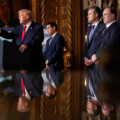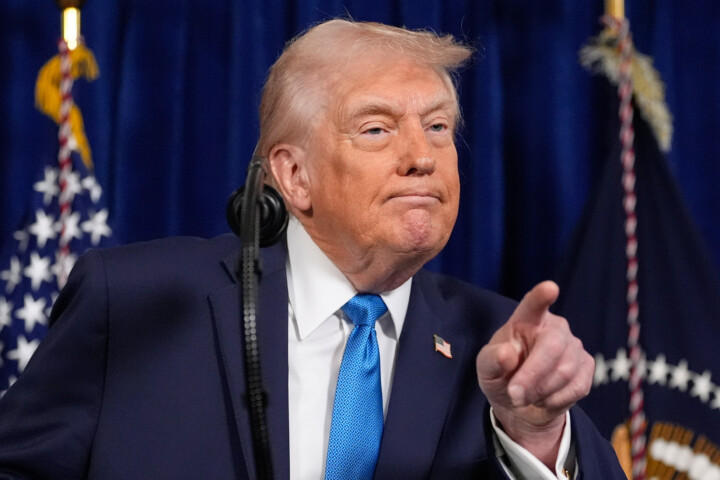The first edition of The Hub’s Weekly Wrap reflects on three of the past week’s biggest stories, including the unfolding ArriveCAN scandal, Steven Guilbeault’s counterproductive comments on roads, and the lasting legacy of Justin Trudeau’s prime ministership.
The troubling implications of a shocking scandal
This week’s auditor general’s report on the ArriveCan scandal is genuinely shocking. Even if one is prepared to grant the government considerable slack in light of the unique pandemic context, it doesn’t excuse such a fundamental governmental failure.
The basic details are now well-known. The government outsourced the development of the mobile application to GC Strategies without evidence that the two-person company had much capacity or expertise or even requiring that it first submit a proposal. It then itself outsourced app development to various sub-contractors to actually perform the work. The eventual cost ballooned to as much as $60 million. GC Strategies received $19 million for its role.
It mustn’t be forgotten that the app which was used for roughly two years didn’t function well either. It was the subject of 177 updates (which amounted to one every five days) including one in June 2022 that caused 10,000 travelers to be wrongly instructed to quarantine.

The upshot: we paid far too much to companies who were unqualified to develop a mobile application, and they predictably produced a poor-quality one that caused a lot of problems for the government and Canadians.
Yet, as much as we know from the auditor general’s report, there’s a lot that we still don’t know—namely, how did something like this happen?
I previously worked in Ottawa for more than five years, including in the Prime Minister’s Office and the Department of Finance. My experience was marked by the typical frustrations of working in the government, including multiple layers of signoffs, various stages of approvals, and ongoing Treasury Board scrutiny. We were often told that these laborious processes were an annoying yet necessary insurance cost against such spectacular failures.
In light of those various bureaucratic checks, it’s hard to understand how something that so self-evidently failed the principle of “value for money” and quite likely crossed into the realm of outright criminality could have gotten through the system. It should have been killed at various stages of review and approval.
The RCMP’s own investigation may determine why that didn’t happen. But the present facts don’t indicate that sophisticated corruption was a key factor here. The only people who seemingly got rich off the scandal are the two principals at GC Strategies. The real story seems both less salacious and satisfying than one might expect. It mostly appears to be a story of low-grade incompetence. The implications for the government are in some ways worse than if corruption had been the cause.
Conservatives are often criticized for having a more restrained vision of the state on the grounds that it signals an indifference to our economic and social challenges or the limits of market forces to solve them. As I’ve written elsewhere, however, it’s not sufficient to declare that a certain problem represents a market failure. The nature and scope of a market failure need to be weighed against a realistic view of a potential government response rather than an idealized one. Market failure, in other words, must be assessed against the rather high possibility that a government intervention will produce its own failures that could be bigger and more damaging than the problem that it’s trying to solve. The ArriveCan app is a case in point.
The main lesson of the week therefore ought to be a hit of reality for those inclined to an idealized view of government action. Unless, of course, you work for GC Strategies.
Guilbeault’s counterproductive radicalism
Steven Guilbeault’s comments this week that the federal government will no longer fund provincial and local road projects has precipitated pretty widespread condemnation and a feeble attempt on his part to clarify his statement.
It must be said that there is a world in which his comments are actually defensible. The federal government’s involvement in funding local infrastructure isn’t the historic norm. For most of Canadian history, it was understood that provinces and municipalities were responsible for financing their own infrastructure. The federal role was mostly limited to interprovincial or trade infrastructure like railways, highways, border crossings, and ports.
Starting in the early 2000s, successive federal governments have entangled themselves further and further in the direct financing of provincial and local infrastructure. We’re now collectivizing national tax dollars to fund residential roads in local communities. There’s a strong argument that this policy trend represents a misreading of the Canadian Constitution.
If therefore Guilbeault’s point was that Ottawa is getting out of the business of local road construction in favour of dedicating federal resources to national projects, it would have been a principled correction to the growing nationalization of public infrastructure financing in Canada.
But of course that wasn’t his motive. Guilbeault seems to live in another virtual realm in which motor vehicles—including hybrid or electric ones—aren’t going to be a key part of Canada’s transportation future.
Outside of the country’s major cities, the idea that public transportation can become a significant or even the dominant mode of transportation is an ideological fantasy. It’s similarly fantastical to think that we can somehow fully substitute the 77 percent of the volume of goods that are shipped across the country by truck. These faulty assumptions reflect a fundamental misunderstanding of the interaction between basic economics and Canada’s unique geography. They’re such radical ideas, in fact, that they bring into question Guilbeault’s entire understanding of climate policy in the Canadian context.

They also involve a high degree of cognitive dissonance. His government has mandated the transition to electric vehicles by 2035. It has also already spent billions of dollars to subsidize production in Canada. Is the plan to regulate and subsidize the creation of an electric vehicle industry into existence and then refuse to fund the roads on which Canadians will drive them?
It’s the sort of unserious thinking that actually does harm to the practicalities of a durable and successful climate change agenda. It also exposes the inherent problems of appointing a hard-core ideologue to lead the file in the first place.
Progress on climate change, as we discussed with David Frum this week, will come from pragmatism, not dogmatism. Guilbeault’s controversial tenure as federal environment minister is dispositive proof. His radicalism may resonate with his fellow activists but, as we’ve seen in recent days, it’s ultimately counterproductive for his own cause.
Trudeau’s legacy is a truly changed Canada
This week’s poll that only 3 percent of Canadians believe that Justin Trudeau’s ongoing leadership of the Liberal Party is in the party’s interest is a virtually unprecedented public indictment of a sitting party leader. At this point, only some combination of delusion and ego would cause the prime minister and party members to not seriously consider replacing him before the next federal election.
As devasting as the poll is however it’s wrong to interpret it as a sign of failure of Trudeau’s prime ministership. Yes, of course, he’ll leave office with levels of unpopularity that are matched by only the least popular prime ministers in Canada’s history. But public standing is only one means to evaluate a political leader’s record. Another is the extent to which Trudeau has made durable changes to Canada’s overall public policy direction and its political culture more broadly. On this front, he must be understood as a highly influential prime minister.
Take Canada’s fiscal policy direction. Trudeau’s large-scale spending on child care, climate change, health care, housing, and other files has reshaped the federal government’s fiscal trajectory by effectively locking his successors into dedicating scarce resources to his progressive priorities and in turn narrowing the options for tax cuts or other conservative policy preferences. Unless he’s prepared to assume great political risk, a Pierre Poilievre-led government will preside over a fiscal framework established by Justin Trudeau. The net result: Ottawa will be permanently bigger than it was before the latter became prime minister.
The same goes for the broader political culture. Although causality and correlation are hard to judge, it’s clear that Trudeau has presided over the flowering of identity politics in our major institutions including big business, universities, the news media, and the government itself. Gender pronouns, race-based hiring and promotion, and culture wars over questions of human sexuality weren’t really part of the pre-2015 mainstream debate. They are today.
Even if Trudeau didn’t originate these trends, he certainly helped to precipitate them. One might even (somewhat facetiously) argue that one of the biggest exports during his time in office is Jordan Peterson who first rose to prominence based on his opposition to Bill C-17 (tabled in May 2016 and passed in June 2017) which added gender identity and expression as protected grounds under the Canadian Human Rights Act.
It’s hard to imagine that Trudeau’s eventual departure will cause these types of divisive issues to recede. They’re now not only ensconced in the public consciousness but there are various individuals and institutions whose interests are firmly rooted in the perpetuation of these ideas and norms. The future will be marked by greater contestation concerning culture, identity, and sexuality. This is a big part of Prime Minister Trudeau’s personal legacy too.
The key point here is that Trudeau has overseen a transformation of Canadian public policy, governance, and culture. The country has changed under his prime ministership and an electoral defeat (even if a significant one) won’t change that.
Recommended for You

‘Energy is power’: Trump goes for Venezuelan oil—where does that leave Canada?

‘It’s jarring’: Hub Politics on how Canadians are reacting to Trump’s foreign policy moves

The global policeman is becoming the global rent-seeker

An Alberta budget crisis? It may be closer than you think




